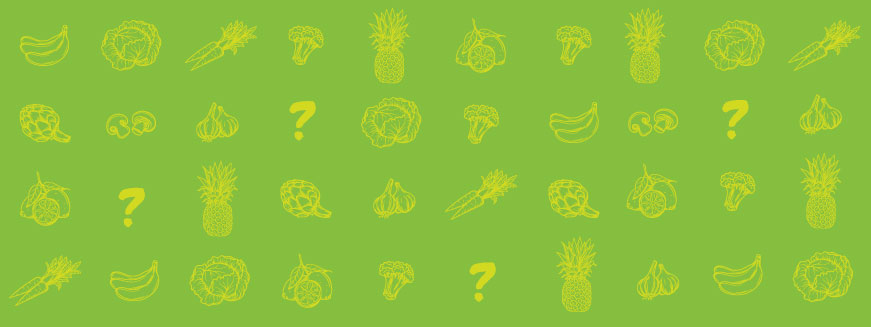The Fresh Blog
Lifestyle, Health, Nutrition & Inspiration from Luvo
The Nutrition Questions I’m Always Asked
From the playground to the Player’s Tribune events, I’m quite a popular gal. I’d like to say it’s my winning personality that draws the fanfare, but often it’s the fact that as a dietitian, I’m available to answer all of those nagging, personal questions about food and nutrition that leave you wondering…what’s the real story? It’s a common occurrence, from the mom at school who handed me her food diary to Kelly Ripa (the Kelly Ripa!), who, upon meeting her briefly, whipped out her protein bar and asked me to weigh in.
I’m spending less time on the playground these days so let me enlighten you with answers to the top questions I’m always asked.
Should I do a juice cleanse (or detox diet)?
I understand the need to re-set after a weekend (or week…or year…or 10 years) of reckless eating but I’m not a huge fan of this approach. Let’s start with the science: As long as you’re healthy, there is no evidence to suggest that this form of hunger strike will benefit your body in any way.
Now let’s break down those juices. I’ve watched the juice bar baristas loading four to eight pieces of fruit into a single serving. Even when veggies are added, once pressed, these juices retain very little fiber and are overloaded with naturally occurring sugar. That’s not doing your body many favors!
Finally, what’s your transition plan for upgrading your pre-cleanse diet? If you’re putting all your efforts into the juice plan and ignoring the days, weeks, and years to follow, it’s time for a new strategy. My advice: Skip the juice diet and load up on whole fruits and veggies. Really load up. Make them the centerpiece of every eating occasion and add staying power with lean proteins (tuna, eggs, chicken), healthy fats (olive oil, avocado, nuts), beans (chickpeas, edamame, lentils), and whole grains (quinoa, brown rice, oatmeal). One more thing: Cut way back on sugar and white, processed foods (white bread, rice, and pasta). This is a cleanse I can get behind.
Which granola bars do you recommend?
Ah, the birth of the busy lifestyle, eating on the run, and…the bar. As a single mom with a full time job, I see the need for an on-the-go snack. My go-to bars are from KIND. I’m a big fan of the Nuts & Spices line because of the decadent flavors (Dark Chocolate and Sea Salt and Caramel Almond and Sea Salt are two of my faves) for less than 5 g of added sugar. A feat! Made mostly of nuts, they’re a filling snack and paired with fruit, a good grab-and-go breakfast. Their healthy grains line is a good nut-free (and gluten-free) option that also keep sugars tame. Some of my RD friends go for larabars and thinkThin bars. And Kashi makes a few good options.
The thing with bars is that many are glorified candy creations. Your best bet is to look for one made with real food ingredients (nuts, whole grains) and keep tabs of added sugars–7 g, which is almost 2 tsp. is a good number. Of course, there are plenty of between-meal snacks that are just as easy to grab. A piece of fruit, a cheese stick, nuts, popcorn, and baby carrots are some of my snacking mainstays.
Do you ever eat fast food?
Of course I’ve eaten fast food! But more often, I prefer to savor my indulgences rather than gulp them down in the name of time. A slice of neopolitan-style pizza, a juicy Shake Shack burger, or a fresh doughnut from one of the local NYC eateries are some of the things that speak to me. I take a balanced approach to eating and I recommend you do the same. Most of the time, I enjoy foods that feed my body but sometimes, I eat things that nourish my soul. The foods above are just a few examples. If you take this approach and add in regular activity (walking, biking, and yoga are a routine part of my life), then you’ll be on track. And if fast food is your soul food, that’s OK. Just make sure you’re eating it in the right ratio compared to the other things in your diet.
What do you think about protein powders?
I generally take a whole foods approach to eating but here’s where I make an exception. Whether you’re amping up your exercise or just looking for a convenient way to add more staying powder to smoothies, oatmeal, etc., protein powders are an easy option. Whey protein isolate and hydrolyzed whey protein—derived from milk—are especially useful tor triggering muscle protein synthesis. Another dairy derivative, casein, is a slow-digesting option, meaning that it’s good for keeping that stay-full feeling.
There are vegan options, too, like pea, hemp, and rice protein, to name a few. Pea protein has been generating some buzz and I can see why. As my friend and New York Yankee’s dietitian, Cynthia Sass, reports in Health, it can delay muscle fatigue during exercise, enhance immunity, and help maintain bone density.
You’ll also see soy protein options on the market. Although I eat plenty of whole soy products, I generally avoid things made with soy protein isolates—a very processed form of soy that concerns me.
My last caution about protein powders is to look at the other ingredients on the label. The idea is to use these to build better smoothies, pancakes, oatmeal, and more—not to override the benefits with loads of added sugar or crazy amounts of additives.
Should I always eat organic food?
Let’s start with organic 101. Organic refers to the way food is produced. Nutrition refers to feeding your body in a way that provides the nutrients needed for good health.
I read a study a few years back that found that when people were given identical yogurt, cookies, and potato chips, the ones that were labeled organic were rated as more nutritious, lower in fat, and thought to contain significantly fewer calories. That’s the power—and misperception—of the organic label at play!
Ask any health professional and they’ll tell you that healthy eating really boils down to making fruits and vegetables the main attractions of your plate, whether or not they’re organic or conventional. All of the science—and I mean all—suggests that people who eat the most produce have the best health outcomes, and even in 2015, most people are eating conventional produce.
I support organic practices and often buy organic fare but for me, filling my shopping cart with fruits and veggies is priority number one. I let my budget steer whether those and other foods are organic or not.
What’s your stance on GMOs?
As with most things, I stand on the side of science. Using biotechnology to alter genes has a long record of safety. Despite consumer fear, 89% of scientists believe GMOs are safe. That’s a lot of scientists. Every time we eat, we expose ourselves to a degree of risk. If food isn’t transported or held or cooked at the proper temperature, it’s a risk. Eating raw sushi poses some risk. Organic produce is 10 times more likely to be recalled for food safety issues than its cousins in the other bin. As far as any health threat goes, I haven’t seen evidence of harm from GMOs so at this point, I don’t understand the fuss.
What supplements do you take?
Vitamin D. That’s it. Read my take on vitamins in this post.
What do you think about [fill in the blank] diet?
I generally look at a few key things when assessing any diet du jour. What role do fruits and veggies play? What food groups are missing? How easy is it to sustain this way of eating beyond the initial weight loss phase?
Studies show that people lose weight on all sorts of diets so the critical thing is to make sure that the meal plan is packed with produce and that you’re addressing any nutrient gaps with careful planning. (Let’s say dairy is off the menu. How are you meeting your calcium needs?) A plan that fits within your day-to-day life and eating preferences is the one that will lead to long term success, whether that’s low-carb, paleo, counting points, or anything else.


